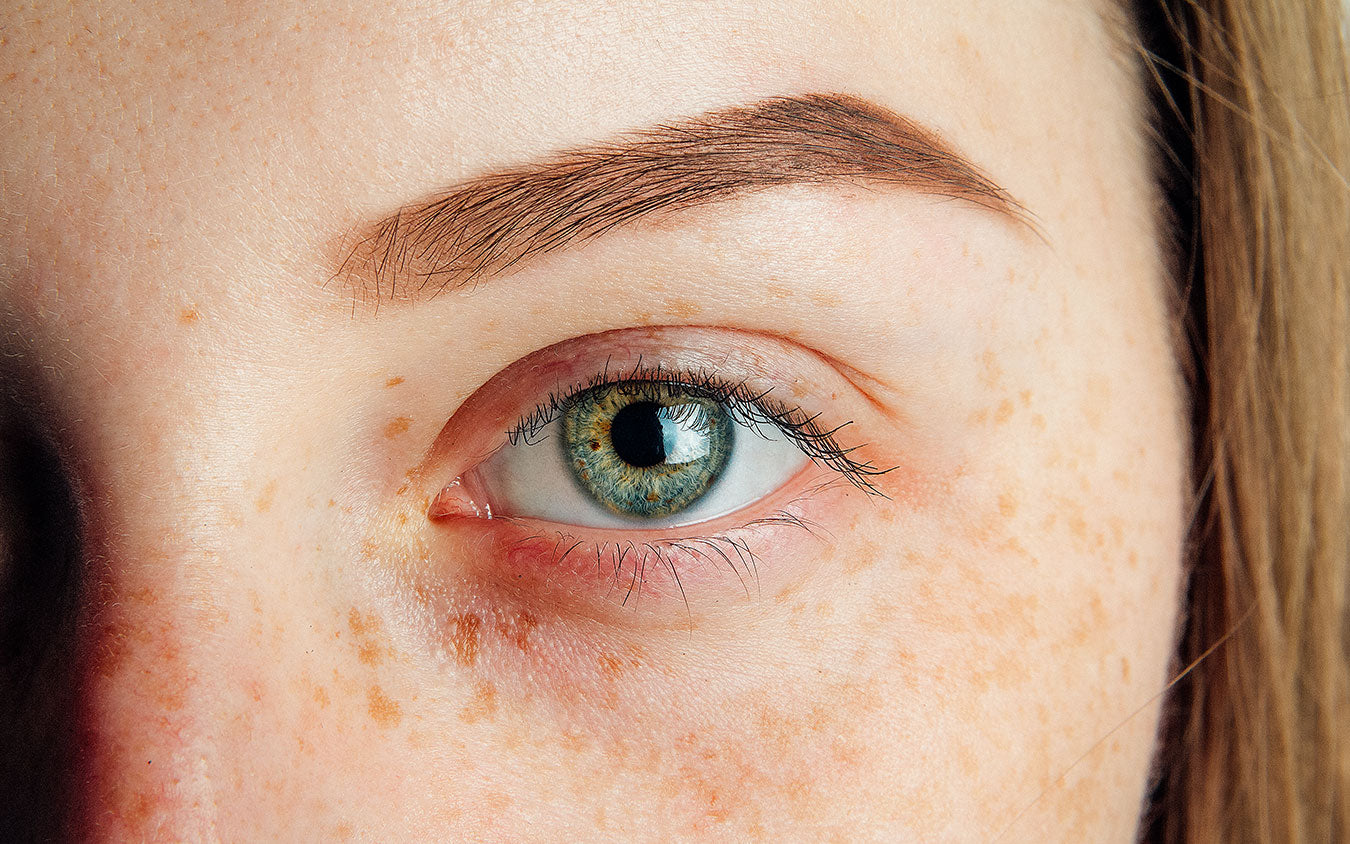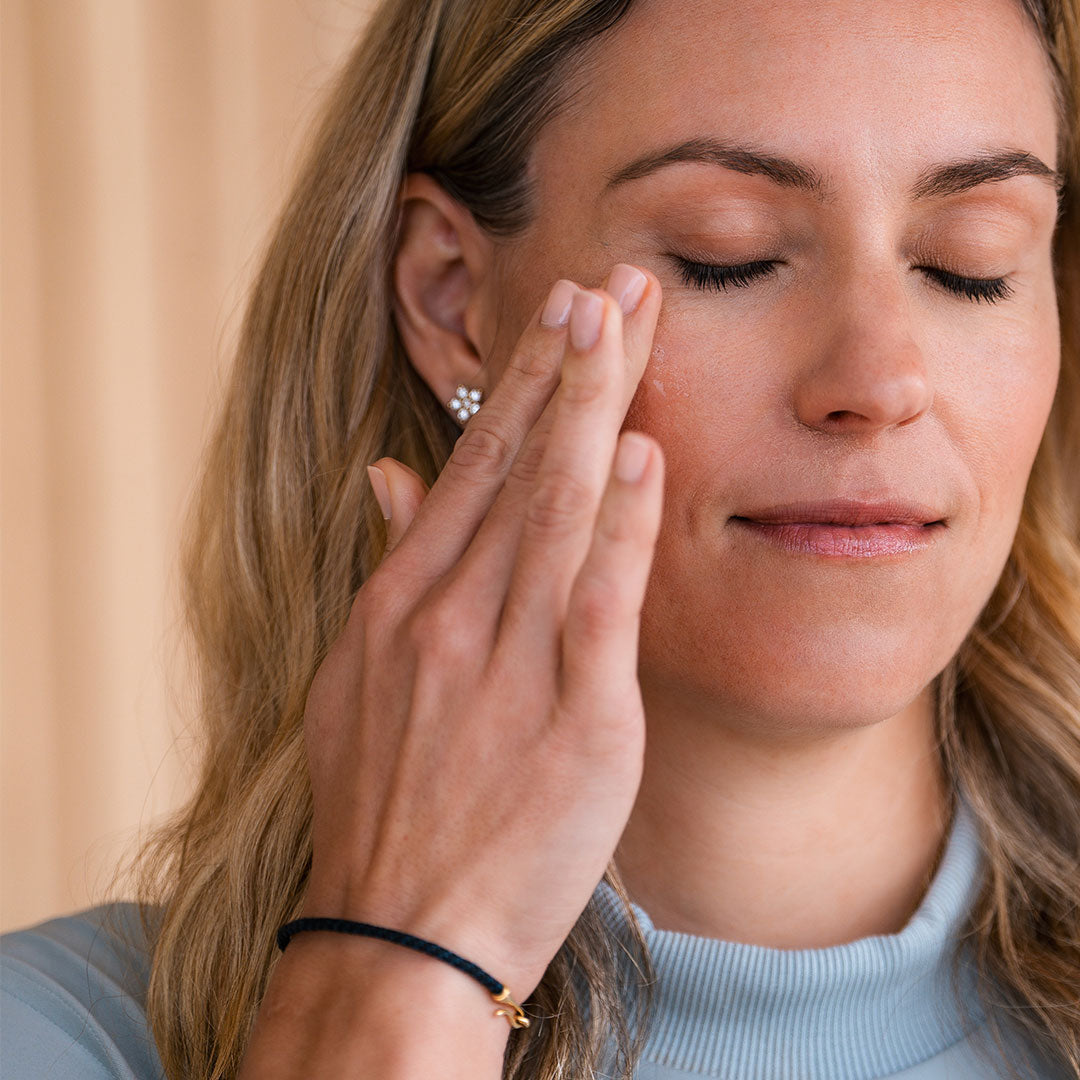
The right skin care for pigment spots
Pigment spots can be a common sign of skin aging, but they're more than just a cosmetic problem. We'll show you what pigment spots are, how they develop, whether they can be harmful, and what you can do if they bother you.
Pigment spots at a glance
– Pigment spots are hyperpigmentation of the skin.
– They are caused by an overproduction of melanin in the skin cells.
– You can recognize them by dark spots that stand out from the surrounding skin.
– Freckles and age spots are also pigment spots.
– UV rays are the most common cause of hyperpigmentation.
– Hormonal fluctuations, increasing age or genetic predisposition can also lead to spots on the skin.
– Sunscreen with a high SPF is the best prevention .
– Pigment spots can persist permanently .
– Active ingredients such as niacinamide can reduce spots in the long term .
Pigment spots are mainly caused by UV rays
Increased melanin production can be caused by various factors. In addition to genetic predisposition, increasing age, and hormonal fluctuations (e.g., due to hormonal contraception or pregnancy) , pigment spots primarily develop when UV rays penetrate the skin's layers . There, UVA rays stimulate the production of melanin pigment, causing the skin to noticeably change color and tan. For some people, however, unprotected exposure to the sun's rays also leads to uneven pigmentation and the development of dark spots on the skin.
Do pigment spots stay in the skin forever?
Not necessarily! Hyperpigmentation can be permanent , but it can also fade over time or be reduced with special skincare products .
Persistent cases include, for example, pigment spots that appear with age after years of unprotected sun exposure. However, if the spots are not severe or are caused by hormonal changes, they can disappear again—for example, if the hormonal medication responsible is discontinued.
Light pigment spots are generally harmless
Hyperpigmentation is primarily a cosmetic problem, especially when it occurs on the face. However, if you notice that your pigment spots are becoming noticeably darker or changing shape, you should have them examined by a dermatologist, as in rare cases, they can also be a sign of conditions such as skin cancer.
Note: If your skin already has pigment spots, you should definitely protect the affected areas from UV rays by applying a high sun protection factor cream every day!
Niacinamide can reduce pigment spots
The most effective prevention against dark spots is thorough sun protection through clothing and sunscreen with a high SPF. Make sure to moisturize exposed skin first thing in the morning and reapply regularly after sweating heavily or swimming. Our sun care bundle plus protects your skin from the sun and UV-induced dark spots with SPF 50+ and 30 on your face, lips, and body.































